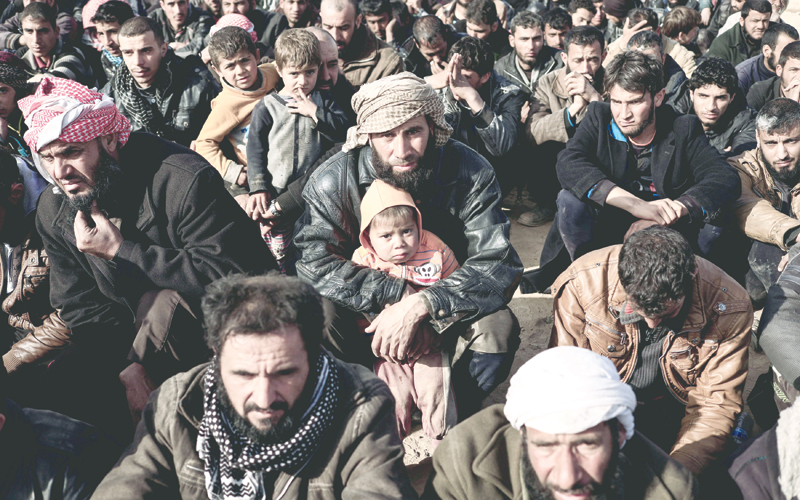

MOSUL: One informer said he hid the SIM card from his mobile phone in a water filter to avoid detection by IS. Another concealed his in a sack of rice and made calls to his Iraqi handlers from a basement.
They were among several hundred Mosul residents who provided information on IS targets during the victorious nine-month battle for Iraq’s second biggest city, Iraqi military and Kurdish intelligence officials said.
They included taxi drivers, Iraqi soldiers and defectors from IS. Without their help, officials say, the fighting would have dragged on longer, snared in Mosul’s narrow alleys.
“I was really afraid the whole time. Because you paid with blood, you paid with your life if you were caught,” said one of the informers, 30-year-old former army sergeant Alaa Abdullah, who remained in Mosul after its capture by IS in 2014.
“My mother used to say, you’re still young. But I’d tell her, every time I see an IS fighter, I get a grey hair,” he said. “And you can see all my greys now. From all that hatred and fear.”
The city, which was home to about two million people before the war, was liberated in July. IS’s reversal seemed improbable in June 2014 when its fighters swept into Mosul.
The militants were welcomed by many fellow fighters, the majority of the city’s population, who complained of injustices at the hands of Iraqi government.
The Iraqi army capitulated and fled, leaving its weapons behind.
Mosul was IS’s most significant conquest in Iraq, part of what it called a “caliphate” that stretched into neighbouring Syria.
In Mosul’s Great Mosque, IS leader Abu Bakr al Baghdadi declared himself the head of the world’s Muslims in July 2014.
Yet by the time Iraqi forces launched a massive ground assault to retake Mosul in October 2016, backed by Kurdish fighters, militias and US air power, many residents had turned against the group, which exerted brutal control. Its opponents were beheaded or shot.
Acts such as smoking a cigarette were punishable by 40 lashes, residents said.
In interviews with Reuters, nine Iraqi and Kurdish military officials, informers and their relatives detailed how their battle for Mosul unfolded.
As Iraqi army commanders and US advisers were preparing the ground offensive, intelligence officers were recruiting informers, building alliances with the region’s tribes and infiltrating Baghdadi’s inner circle.
Iraqi intelligence had tested using informers in the successful operation to retake another IS stronghold, Fallujah, in June 2016. Now it was time to apply the tactic on a
bigger scale in Mosul.
Reuters couldn’t independently confirm every detail of the informers’ accounts.
Oman Observer is now on the WhatsApp channel. Click here



